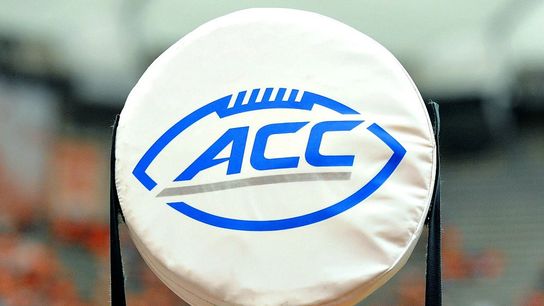Ah, the BCS. Anybody miss it? No? Didn't think so.
One of the BCS's most memorable moments -- if you want to call it that -- came during the infamous three-way tie in the Big 12 South back in 2008, when Oklahoma, Texas and Texas Tech each finished 7-1 in conference play, and the BCS standings sent the Sooners to the national championship game while dooming Texas to the Fiesta Bowl and Texas Tech to the Cotton Bowl.
A similar dilemma could arise this season in the ACC Atlantic, and the ACC has adopted a similar solution.
Louisville, Clemson and Florida State could plausibly each finish 7-1 in conference and, in that event, there are no easy solutions. ACC ADs and/or coaches could vote, but that opens the league to political infighting and conspiracy accusations. They could leave it to a poll, but the College Football Playoff poll doesn't come out until Tuesday night, the Coaches' Poll is wildly uninformed, and the AP poll pulled out of the BCS because it just wanted to chronicle the news, not create it.
So, essentially, the ACC will revert back to the BCS days. But rather than recreating the entire formula, the league will leave the decision up to one computer poll. Instead of the old standbys like Massey and Anderson & Hester (you BCS dorks know what I'm talking about) the ACC has chosen SportSource Analytics.
The young company is the official analytics supplier of the CFP and, now, the official final tiebreaker for the ACC. Writes Heather Dinich for ESPN.com:
This particular ranking, though -- a team rating score metric -- is not given to the CFP committee members, and it's not free to the public like the former BCS standings, which was also used to break three-way ties. The highest-ranked team in the team rating score metric would win the Atlantic Division, and SportSource Analytics would permit the ACC to release the ranking of the teams in the conference in the event it is required to break a tie.
SportSource Analytics explained the team rating score as "a metric that evaluates all facets of on-field team performance that are highly correlated to team success and combines them into a single comparable value." It combines statistics from offense, defense and special teams and uses "individual statistics that are a mix of raw, tempo-agnostic, opponent-adjusted and efficiency metrics." Conference and nonconference winning percentages, as well as strength of schedule, also factor into the statistic.
So the champion of a division will be decided by a single, proprietary computer metric. Just like the BCS, only more BCS-y.
Hey, it beats flipping a coin.
